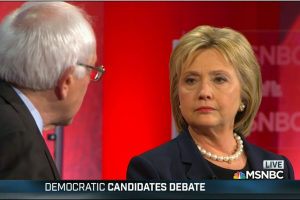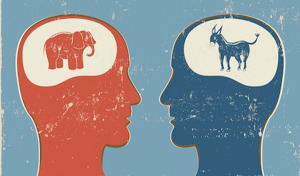 One of the discussions started by my previous post was on the value of third-party Presidential votes as a means to send a message to the major parties and influence their future platforms. The thinking being that if Gary Johnson gets 20% of the vote, that the Republicans would recognize that Libertarian ideals were more popular than they thought and realign to capture more of those voters in the next cycle. Presumably a similar showing by Jill Stein might heavily influence Democrats.
One of the discussions started by my previous post was on the value of third-party Presidential votes as a means to send a message to the major parties and influence their future platforms. The thinking being that if Gary Johnson gets 20% of the vote, that the Republicans would recognize that Libertarian ideals were more popular than they thought and realign to capture more of those voters in the next cycle. Presumably a similar showing by Jill Stein might heavily influence Democrats.
While I can see the logic in this, it’s unclear to me there’s a lot of evidence for this strategy working in the past. But then rarely do third-party tickets attract more than noise, so there’s not much data here. Still, I think the evidence for the efficacy of Berners or the Tea Party influencing their party’s platforms from within is far stronger than the case for exogenous forces. So even if the third-party approach works, it’s unclear it’s the most effective strategy to achieve change.
Regardless, the unique structure of this year’s election cycle makes the likelihood of either party being influenced by a third-party’s performance negligible. Specifically, both parties are aware they are running very unique candidates. Clinton is toting a ridiculous amount of baggage and is vying to be both the first woman and first Presidential spouse ever elected. Trump is a generational anomaly almost defying description. He is reviled by many in his own party and most of the GOP establishment would jettison him in a heartbeat if they could do it without sending the party into a death spiral.
In this environment, if either or even both major candidates have their ass handed to them in November by Johnson or Stein, it won’t be attributed to the strength of the Libertarian or Green party platforms. It will be attributed to the weakness and uniqueness of the party’s own nominee. Even Johnson’s own campaign is trying to exploit this by emphasizing that voting for him is a vote against both Trump and Clinton (as opposed to a vote for the Libertarian platform). Regardless of the outcome, I think both parties are already trying to figure out how they can never have anything like this election cycle happen again. The third-parties are irrelevant (at least in 2016).
I stand by my initial assertion. Third-party votes are functionally equivalent to abstentions. Still, I suppose if they get you to the booth to vote the down-ticket races, then that’s a good thing. But before abstaining, you should be damned sure you’re prepared to live with either outcome, because you will live with one of them.
Remember the Brexit. Don’t wake up on November 9th with regrets because what you assumed was going to happen despite your (in)actions did not.




